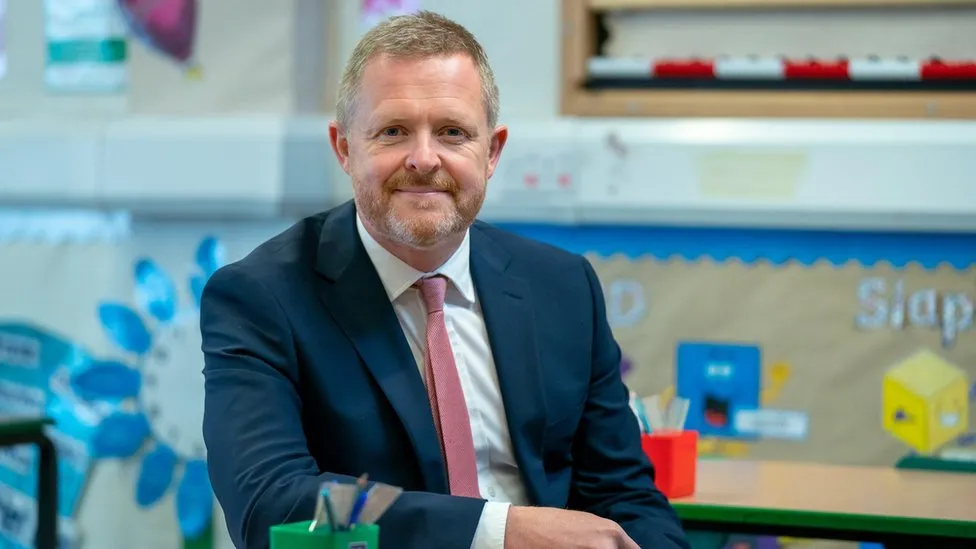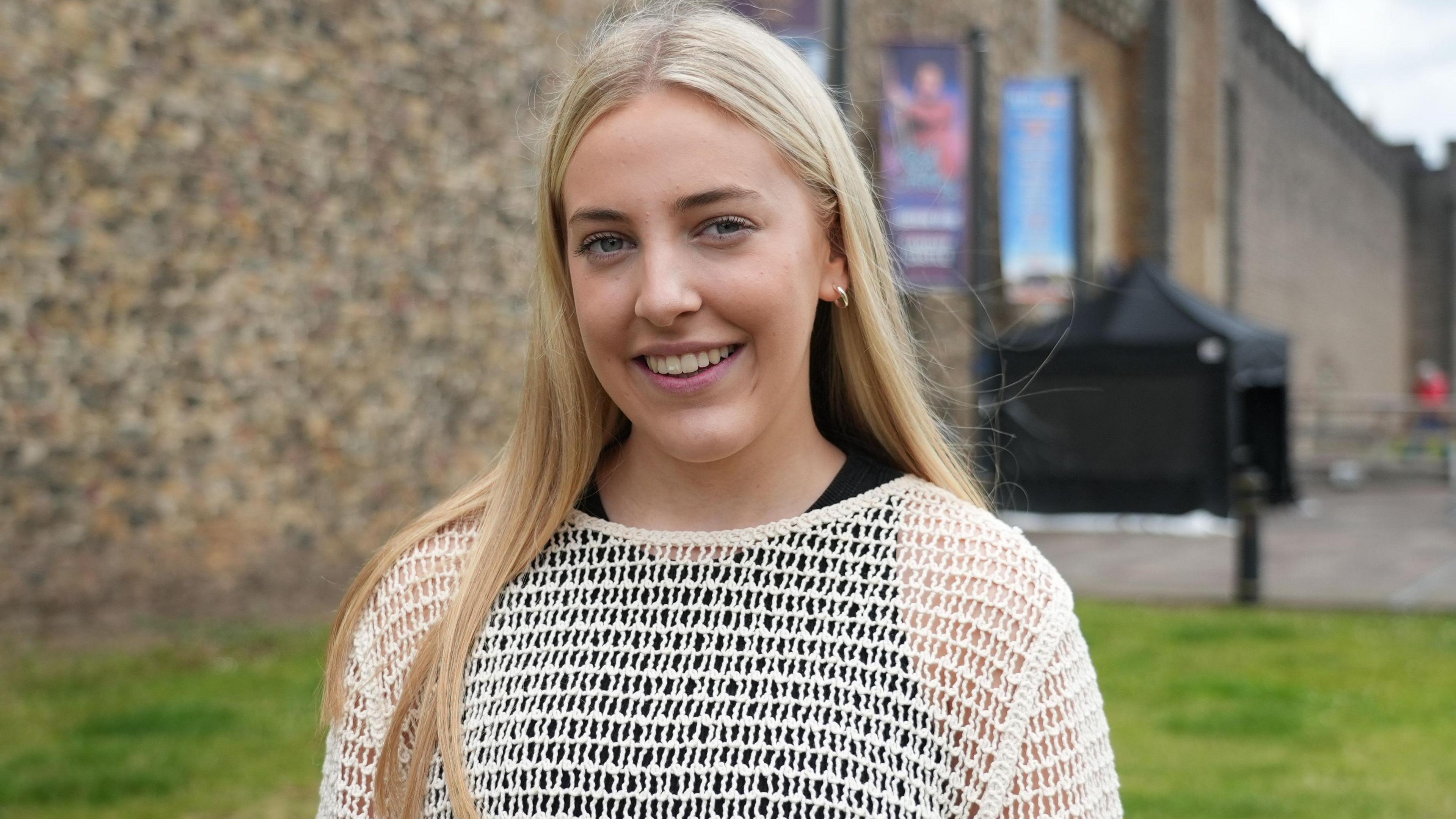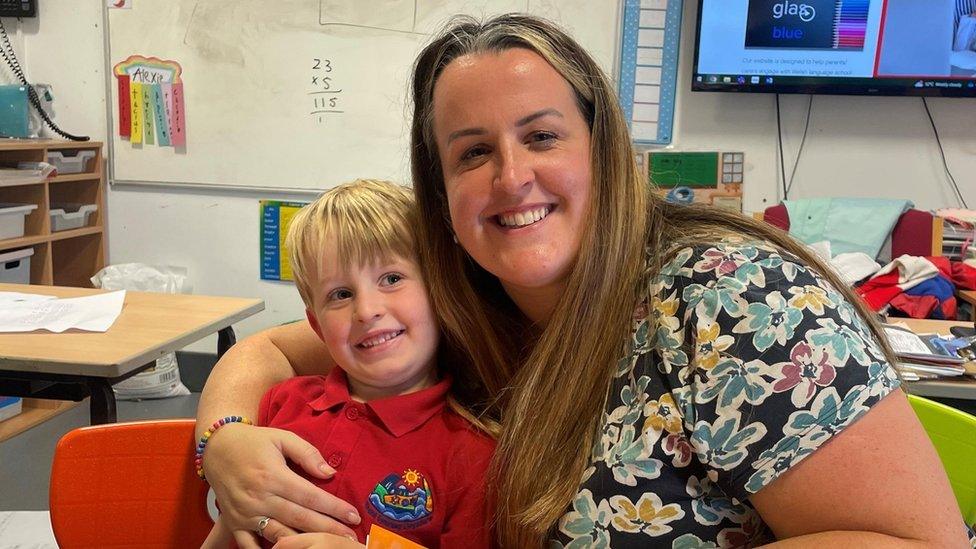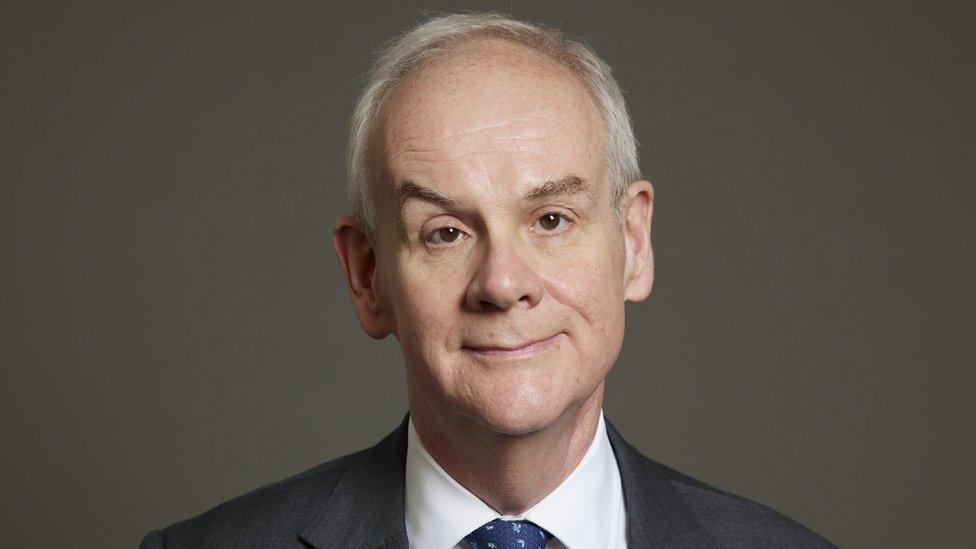Target of million Welsh speakers may become law

The Welsh government aims to have a million Welsh speakers by 2050
- Published
A bill aiming to put into law the Welsh government's target of a million Welsh speakers by 2050 has been published.
Labour said its plans would help all schoolchildren have a “fair opportunity” to become “confident” Welsh speakers.
Ministers said the Welsh Language and Education Bill aimed to “close the gap” caused by children’s ability to speak Welsh varying depending on where they go to school.
The law would make “immersion” Welsh language education “universally” available across Wales.
Is mixing with English eroding the Welsh language?
- Published13 August 2023
Data on Welsh speakers deemed misleading by expert
- Published7 May 2023
Welsh language use falls over past decade - census
- Published6 December 2022
Welsh language skills and education would also be increased in schools taught through the medium of English.
Cabinet Secretary for the Economy, Energy, and Welsh Language Jeremy Miles said the bill’s publication was a “step towards” the government’s ambition of creating a million Welsh speakers by 2050.
"As a government, we’re committed to building a Wales where the Welsh language thrives in every community," he said.
In 2021 an estimated 538,000 people in Wales aged three and over (17.8% of the population) said they can speak it, the Office for National Statistics found.

Jeremy Miles said he wants Wales to be a palce where "all can be proud of their bilingual or multilingual heritage and skills"
The Welsh government said it would increase the number of staff able to work in the medium of Welsh and improve the language skills of those already working.
Schools would be put into different “categories” depending on whether they teach solely in Welsh, are bilingual, or hold lessons mainly in English.
Each school will have language targets depending on the category it is put in, including minimum acceptable levels.
Cabinet Secretary for EducationL ynne Neagle called the bill a “long-term project and we’ll continue to support our schools to introduce more Welsh into their activities”.
Heini Gruffudd, chair of Welsh language lobbying group Dyfodol i'r Iaith (A Future for the Language) said "the intention of the bill is very positive".
However he believed the most effective way of learning a language was through total immersion.
"You don’t get natural Welsh speakers from English-speaking schools except with some brilliant exceptions," he said.
"You only get Welsh speakers from Welsh medium schools where pupils start learning the language in playgroups.
"If you learn a language after that you’ve lost the best opportunity."

Award-winning Welsh learner Gwilym Morgan says the government's goal can only be achieved by re-thinking what a "Welsh speaker" is
Gwilym Morgan, who won the Urdd Welsh learners medal in 2023, believes the goal of a million Welsh speakers is achievable if people can describe themselves as Welsh speakers with a very basic grasp of the language.
"I think it’s achievable if we clarify what a Welsh speaker is. A lot of people think that being a speaker means you have to be fluent. You don’t," he said.
"I’m a speaker and I’m not fluent. My little brother and sister can say words in Welsh: they’re a speaker.
"They’re nowhere near fluent, but we are all speakers of the language if we say diolch, if we say 'shwmae' ('hi there') - we need people to feel they can accept that."

Lucy McGhie says learning the language made her "proud to be Welsh"
Lucy McGhie, who studied Welsh A-level as a second language at the Bishop of Llandaff High School in Cardiff, said she intends to keep developing her skills after leaving school.
"It’s made me feel so proud to be Welsh and proud of the culture of Wales, especially because neither of my parents are Welsh.
"It’s made me feel empowered because I chose to learn the language myself and develop the skills."
However, she said speaking Welsh in public has been a challenge because of the confidence it requires.
"Writing I found easier, but speaking and speaking to other people outside of school, not just teachers, is definitely a challenge but it’s definitely been helpful in developing the skills to speak Welsh."
'Easy to pick up if you surround yourself'
Lexi Ricketts took AS Welsh and had an interest in the subject because she wanted to identify with her ancestors from parts of north Wales.
She said it was important to immerse yourself in the language and the culture to develop as a Welsh speaker.
"For me it was quite accessible in school, there were a huge range of opportunities to dive into the culture, we went to the Eisteddod, Tafwyl and theatre productions."

Lexi Ricketts says Welsh is "easy to pick up" if you "surround yourself in the language"
Joe Morgan, who has just finished a second language Welsh A-level and hopes to take some courses in Welsh when he attends Swansea University, said he used the language as often as possible.
"There’s options to study some of the modules through Welsh which I hope to do because having Welsh behind you, especially in Wales and Cardiff, can help with jobs so much.
"I feel it’s really important to continue my studies in Welsh."
Joe said he considers himself to be a confident Welsh speaker – at least some of the time.
"I can be when I get into it. It takes a while to feel comfortable with yourself and where your abilities lie.
"Once you’re more confident with your own abilities you can become a more confident Welsh speaker."
He sometimes he doubts himself when he gets words wrong but “at the end of the day, what people really care about is that you’re trying."
- Published28 November 2023

- Published14 March 2024

- Published12 November 2023
